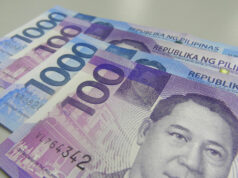THE PHILIPPINES raised the need to review and eliminate trade-inhibiting non-tariff barriers (NTBs) at a recent meeting of Association of Southeast Asian Nation (ASEAN) ministers, the trade department said.
“NTBs make it more difficult and costly to trade. As a representative of the Philippines, I said NTBs affect both agricultural and industrial goods,” Trade Secretary Ramon M. Lopez said in a statement Thursday.
Among the affected Philippine agricultural segments Mr. Lopez cited are horticultural products, bananas, tobacco, fishery products, meat, young coconut, seed, poultry, and swine feed.
Affected industrial goods include electronics, pharmaceutical products, cosmetics, apparel, and footwear.
”Some of these Philippine products have difficulty entering some markets because of high tariffs and strict import requirements,” he added.
Customs surcharges, technical measures and product characteristic requirements and monopolistic measures are among the NTBs affecting the top-traded products in the region, as ASEAN had identified in the 1990s.
The ministers’ meeting, according to the Department of Trade and Industry (DTI), also World Trade Organization (WTO) issues particularly on rule making, transparency and monitoring, and dispute settlement.
The ministers were “unified in recognizing the need to fill the vacancies in the WTO’s Appellate Body, which hears appeals from disputes among WTO members,” it said.
The seven-member body currently has three members, two of whom will vacate their posts this year.
“Since the pillar of the multilateral trading system is the dispute settlement mechanism, we underscored the need to immediately start the process of filling up the vacancies,” the DTI added.
Two agreements were signed on the sidelines of the ministers’ meeting.
The first was the ASEAN Trade in Services Agreement, which “provides the mandate for countries to transition towards a negative list approach for even deeper integration in the future,” the ASEAN Secretariat said in a statement on April 23.
The second agreement is the Fourth Protocol to Amend the ASEAN Comprehensive Investment Agreement. — Janina C. Lim



